Power
Power remains a weak spot of the government as more people now think not enough has been done to alleviate the power crisis. When the government completed its first year, 41 percent thought enough initiatives had been taken. Two years after, 38 percent think so. On the other hand, 24 percent then thought initiatives had not been taken, today 29 percent think so. Back then 24 percent found the initiatives not enough and today 29 percent think so. Males and urban dwellers gave the government good scores on power.


Slide in graft perception
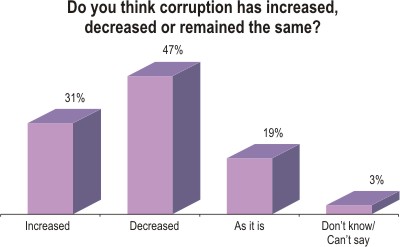 People who think corruption decreased after two years have outnumbered those who think it increased. The survey showed 47 percent respondents think graft decreased against 31 percent who think it increased. 19 percent think it remains as before. People who think corruption decreased after two years have outnumbered those who think it increased. The survey showed 47 percent respondents think graft decreased against 31 percent who think it increased. 19 percent think it remains as before.
However, when compared with the previous three polls, it was found that more people now think that corruption increased over the last two years while a lesser number of people think it decreased. One year ago, 22 percent thought corruption increased and now they are 31 percent. A lesser percentage of people think corruption decreased. One year ago, 54 percent thought corruption decreased and now they are 47 percent. Females were found to be especially critical about the corruption situation as 34 percent of them against 27 percent of the males thought graft increased.
At the same time, more people have a negative impression about the Anti-corruption Commission. Some 51 percent said they think ACC is controlled by the government while 22 percent think it lost its neutrality. Only 10 percent think it is working properly.


Majority still happy with law and order
The majority of respondents are happy with the law and order situation as they were two years ago. When the government crossed its first 100 days, 57 percent thought the law and order situation had improved, two years down the lane 55 percent still think so. More people were happy about law and order one year ago, as 64 percent back then said they found an improvement. Rural people gave a better rating to law and order situation.
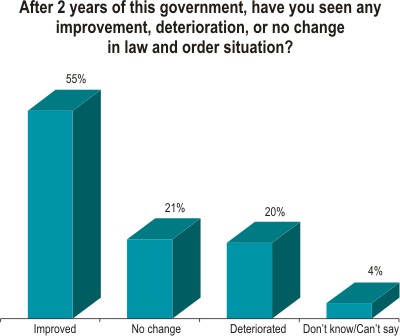
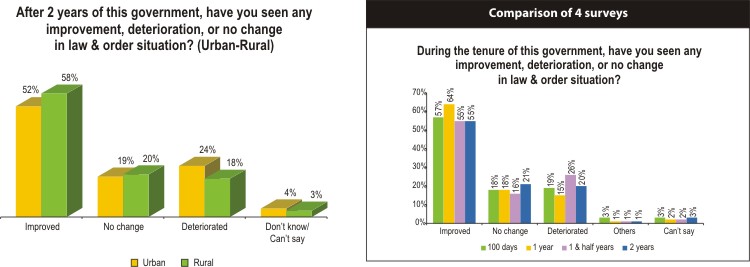
Judiciary
Two years after the government was formed, 40 percent think that the judiciary is not politically neutral while an equal percentage think it is free and independent.
More people now think the judiciary is not politically neutral than two years ago. When the government was 100-day old, 32 percent thought the judiciary was not politically neutral. That number dipped to 28 percent after one year. But now 40 percent think so. However, in the last six months, people's perception about the judiciary improved as 47 percent back then thought the judiciary was politically biased.
Two years ago 41 percent thought the judiciary to be free and independent. A year later 36 percent said so, and now 40 percent think so.
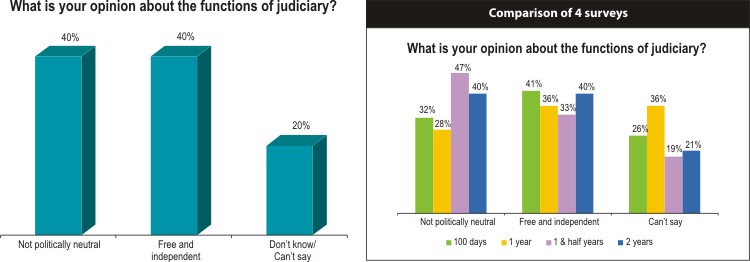
View on political culture/ violence
Two years after this government came to power, 42 percent still see a positive change in the political culture, while 29 percent find negative change. Some 24 percent find the political culture as before.
But people's positive perception about a change in the political culture has diminished over the past two years when compared with the previous surveys. One hundred days after the government's takeover, 56 percent said they found a positive change in the political culture. After one year, 54 percent said so. Two years down the line, 42 percent hold that view. At the same time, those, who think negatively about the political culture, have increased from 14 percent two years back to 29 percent now. Twenty four percent now feel that the political culture remains as before, against 21 percent two years ago.
When asked if old political practice of violence is coming back, 74 percent said “No” showing a big trust in democracy. Only 26 percent said “Yes”.
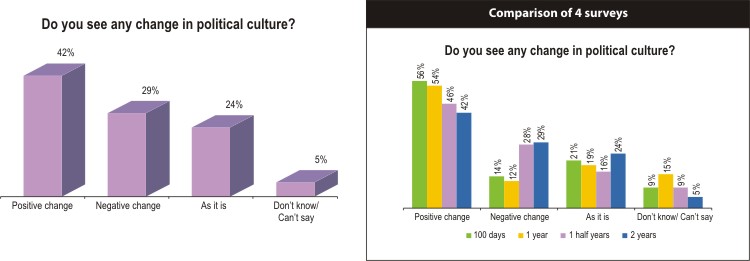

Hasina's popularity still high but declining
Over a half of the respondents (53 percent) are still satisfied with the performance of Sheikh Hasina as the prime minister. However, her rating dropped quite a bit in the last two years. When Hasina became the prime minister, a huge 81 percent said they were happy with her (62 percent satisfied and 19 percent very much satisfied). A year later, 72 percent said so (53 percent satisfied and 19 percent very much satisfied). One and a half years later this rating went further down to 63 percent. Two years down the line she holds a satisfaction rating of 53 percent (37 percent satisfied and 16 percent very much satisfied). Once again, males and urban people gave Hasina a better rating.
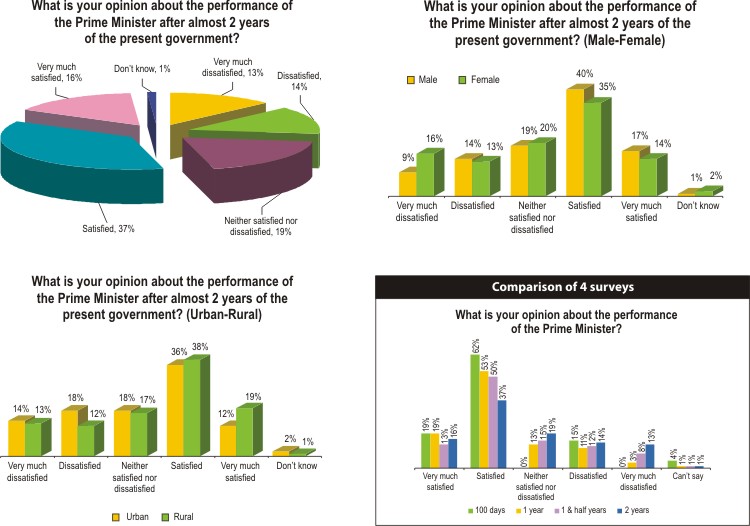
Khaleda's popularity suffers too
Khaleda Zia's popularity also suffered over the two years and went through a topsy-turvy curve. Two years ago, 33 percent said they were satisfied with her performance. A year later, her popularity improved to 39 percent (35 percent satisfied and 4 percent very much satisfied). One and a half years later, she gained even more popularity, hitting 41 percent (34 percent satisfied and 7 percent very much satisfied). But then her popularity drastically dipped to 30 percent after two years (26 percent satisfied and 4 percent very much satisfied). Females and the urban population were more satisfied with her performance.
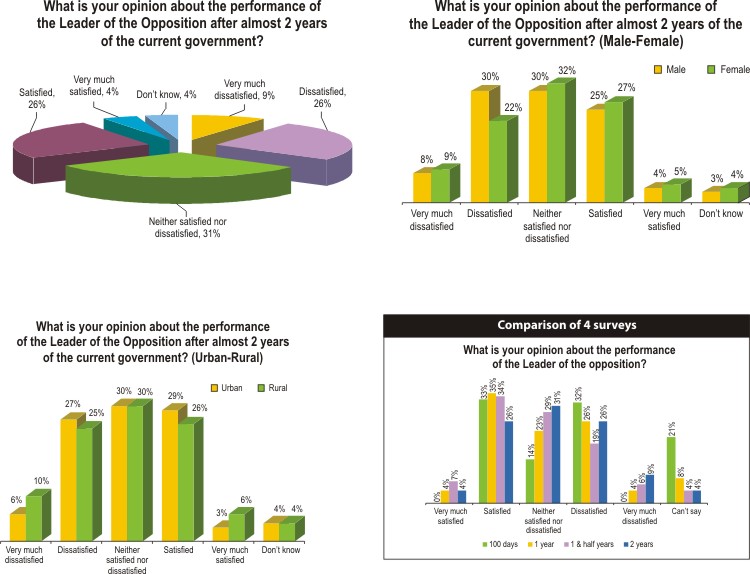
Continue |



 People who think corruption decreased after two years have outnumbered those who think it increased. The survey showed 47 percent respondents think graft decreased against 31 percent who think it increased. 19 percent think it remains as before.
People who think corruption decreased after two years have outnumbered those who think it increased. The survey showed 47 percent respondents think graft decreased against 31 percent who think it increased. 19 percent think it remains as before.







